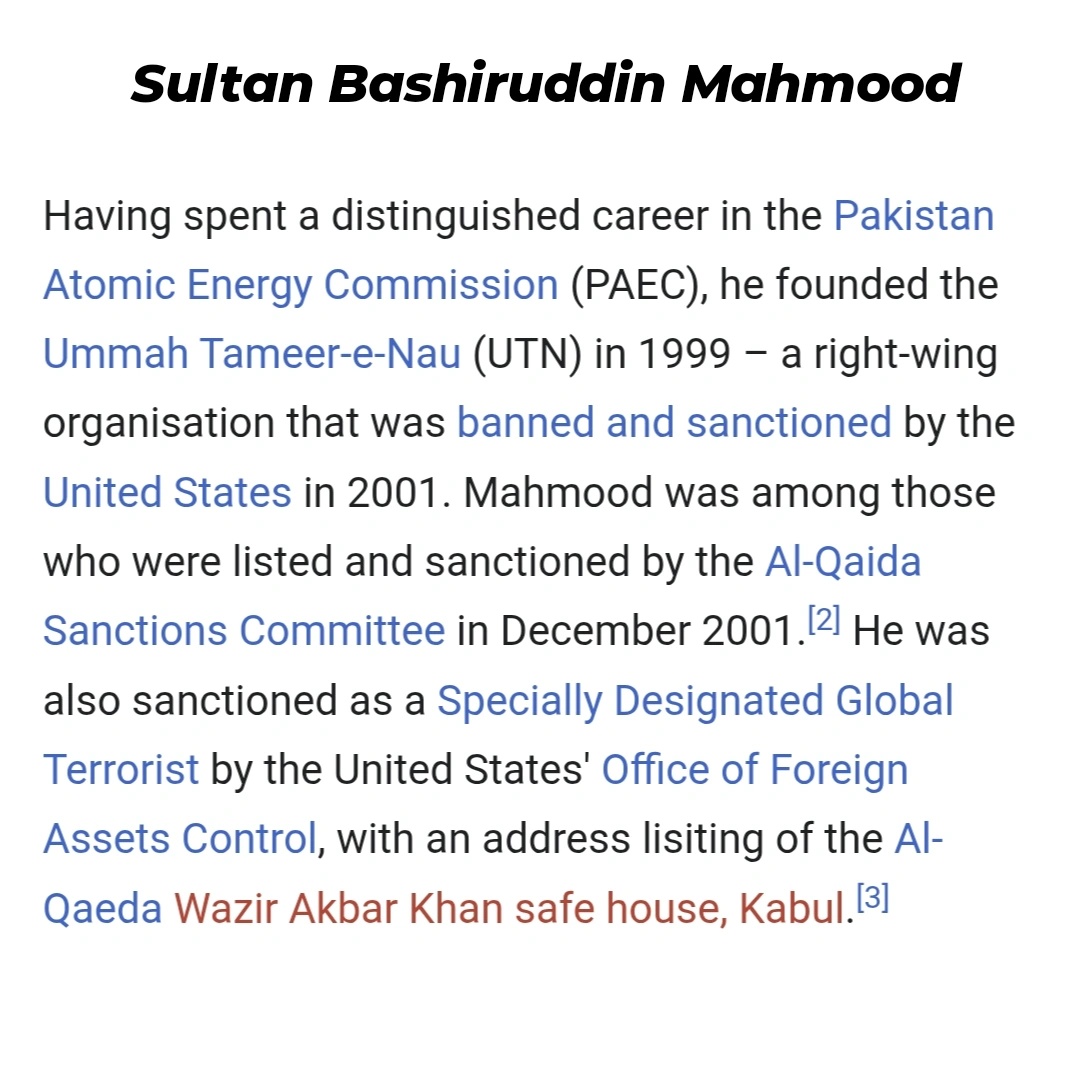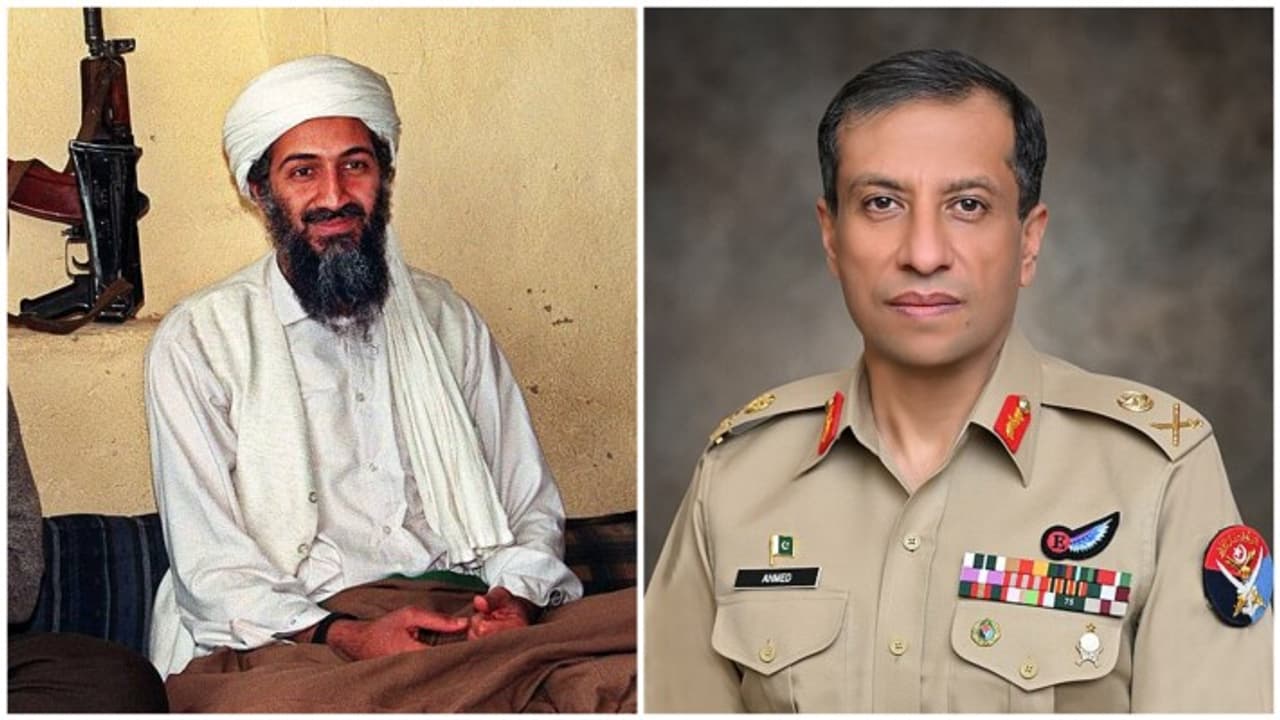Heading Pakistan's disinformation campaign against India's anti-terror fight is Lieutenant General Ahmed Sharif Chaudhry, the Director General of Inter-Services Public Relations (ISPR).
Pakistan's military establishment is inseparably woven with jihadi and terrorist elements and the prime example for this is the three-star Lieutenant General Ahmed Sharif Chaudhry, the Director General of Inter-Services Public Relations (ISPR). Chaudhry, who is briefing the world about the India-Pakistan military crisis, is the son of a declared terrorist, Sultan Bashiruddin Mahmood, who was an aide of al-Qaida chief Osama bin Laden.

Interestingly, Ahmed Sharif Chaudhry's attempt to peddle the exhausted and discredited narrative— “Pakistan is a frontline state in the war on terror/Pakistan is itself a victim of terrorism”—comes with an inconvenient twist.
His father, Sultan Bashiruddin Mahmood, who met Osama bin Laden and tried to hand over nuclear weapons technology to terrorists. He features on the UN Security Council's al-Qaida Sanctions Committee list of terrorists.
Chaudhry, a three-star general and Pakistan Army’s 22nd ISPR chief, is now the frontman in Pakistan’s high-decibel face-off with India. He’s tasked with painting a respectable global image for a country widely perceived as a bankrupt, nuclear-armed rogue state—a state that exports terrorism under the guise of victimhood and cloaks extremism under its nuclear umbrella.

Pakistan’s global reputation is that of a pariah nation—an economic wasteland contributing little to the global order but chaos. Its habit of flaunting nuclear capabilities like a tantrum-throwing child has only cemented its standing as an international liability. The stench of its complicity in nearly every major terrorist strike—from 9/11 and the London train bombings to Mumbai’s devastating 26/11 attacks—continues to haunt it. The bitter irony? If Pakistan is a frontline state in anything, it’s in fostering terrorism.
And now, enter the haunting legacy of Chaudhry’s father: Sultan Bashiruddin Mahmood.
A nuclear scientist by training, Mahmood rose through the ranks of the Pakistan Atomic Energy Commission (PAEC) during the 1960s, working under nuclear pioneer Munir Ahmad Khan. While AQ Khan hogged headlines as the so-called father of Pakistan’s nuclear bomb—“a glorified thief because he stole enrichment designs”—Mahmood played a far more technical and influential role, serving at the Kahuta Enrichment Plant, the Chashma Nuclear Power Plant, and the Khushab Nuclear Complex.
However, after retiring in 1999, Mahmood’s scientific pursuits took a bizarre spiritual detour. He founded an organization called Ummah Tameer-e-Nau (UTN), and devoted himself to metaphysical energy theories—including writing books on capturing djinns to generate electricity in what someone wryly described as “the country founded by Djinnah.”
Then came the final twist: Mahmood traveled to Afghanistan to meet Osama bin Laden and Ayman al-Zawahiri shortly before 9/11.
When US intelligence traced bin Laden’s meetings post-9/11, alarm bells rang upon learning he had met a senior Pakistani nuclear scientist. Mahmood was swiftly detained and interrogated by the CIA and FBI—with the ISI playing its usual double game. He insisted his meetings with the Al-Qaeda chief were strictly about humanitarian concerns.
Eventually released, Mahmood was quietly placed on Pakistan’s exit control list, much like AQ Khan, out of fear that Western agencies might abduct him and extract secrets that Islamabad preferred remain buried.
Now, his son is the face of a nation desperate to rewrite its bloodstained narrative.


